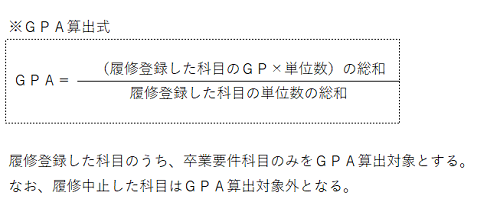Assessment policy
- President's message
- Assessment policy
- Objectives related to human resource development and other educational and research objectives/educational goals/three policies
- Founding spirit
- Various policies
- Rissho University episodes
- Introduction of past presidents
- university brand
- academic organization
- Administrative organization
- Facility introduction
- Public relations magazine
- FD (Faculty Development)
- university evaluation
Rissho University Assessment Policy
institutional level
Rissho University University reviews students' academic achievements in light of its admissions policy (policy for accepting students), curriculum policy (policy for organizing and implementing the educational course), and diploma policy (policy for graduation certification and awarding degrees) as follows:
-
(Admission Policy)
At the admission stage, we verify that students are in line with our university's acceptance policy using the results of various entrance exams, the contents of survey forms, etc., and the questionnaire survey conducted at the time of admission.
- (Curriculum Policy)
- In order to measure foreign language expressiveness and media literacy, the status of ability acquisition is verified through external tests and the percentage of students studying abroad.
- Academic achievement in each grade is verified using GPA, credit acquisition status, class improvement questionnaires, etc.
- The learning status in specialized fields is verified by the percentage of qualifications and licenses obtained.
-
(Diploma policy)
Whether students have acquired sufficient specialized knowledge to qualify for graduation is verified based on their credits earned, GPA*, graduation thesis evaluation, and employment rate.
Curriculum level
The degree of achievement in the prescribed curriculum of each faculty/department is verified using the method shown in Table 1 (link below).
Subject level
The level of achievement of the lesson content indicated in the syllabus is verified through third-party checks of the syllabus, lesson improvement questionnaires, and grades.

Rissho Uninersity Graduate School Assessment Policy
Rissho Uninersity Graduate School will evaluate and verify the learning outcomes of graduate students from enrollment to graduation in the light of its Admissions Policy (policy for accepting students), Curriculum Policy (policy for organizing and implementing the educational course), and Diploma Policy (policy for graduation certification and awarding degrees) as described below, and will use the results to improve graduate school education and research, student support, and each course.
institutional level
- At the admission stage, an entrance examination is conducted to verify from a university-wide perspective whether the applicant has the knowledge, ability, and personality that conforms to the university's overall admission policy. It will be used to improve selection.
- At the stage of enrollment, we verify from a university-wide perspective whether learning outcomes are in line with the university's overall curriculum policy, based on the results of surveys regarding the dropout rate and the educational and research environment for graduate students, and share the results with the graduate school. will be used to improve education/research and student support.
- At the completion/degree awarding stage, whether the graduates have the abilities and qualities that comply with the university's overall diploma policy from a university-wide perspective, based on the number of degrees awarded, career surveys at the time of completion, license/qualification acquisition status, etc. The results will be used to improve graduate school education, research, and student support.
course level
(Master's Course)
- At the admission stage, we use written tests, interviews, research plans, and other submitted materials to verify whether or not the applicant has the knowledge, ability, and personality that conform to the admission policy established by each graduate school. do.
- At the stage of enrollment, students are able to determine the status of each graduate school based on their credit acquisition status, the content of their research guidance plans and research guidance reports, the status of interim dissertation presentations, the results of surveys regarding the education and research environment for graduate students, and their dropout rates. Verify whether learning outcomes are being achieved in accordance with the established curriculum policy.
- At the completion/degree awarding stage, the number of graduates will be determined based on the status of completion requirements, thesis examination, the status of presentations at academic conferences and publication of papers in academic journals, the number of degrees awarded, career research at the time of completion, and status of obtaining licenses/qualifications. We will verify whether students have acquired the abilities and qualities that comply with the diploma policy established by each graduate school.
(Doctoral course)
- At the admission stage, we use written tests, interviews, research plans, and other submitted materials to verify whether or not the applicant has the knowledge, ability, and personality that conform to the admission policy established by each graduate school. do.
- At the stage of enrollment, students are able to determine the status of each graduate school based on their credit acquisition status, the content of their research guidance plans and research guidance reports, the status of interim dissertation presentations, the results of surveys regarding the education and research environment for graduate students, and their dropout rates. Verify whether learning outcomes are being achieved in accordance with the established curriculum policy.
- At the completion/degree awarding stage, the number of graduates will be determined based on the status of completion requirements, thesis examination, the status of presentations at academic conferences and publication of papers in academic journals, the number of degrees awarded, career research at the time of completion, and status of obtaining licenses/qualifications. We will verify whether students have acquired the abilities and qualities that comply with the diploma policy established by each graduate school.
Subject level
At the curriculum stage, the achievement of learning outcomes is verified using the achievement goals and performance evaluation methods set for each subject and specified in the syllabus.

